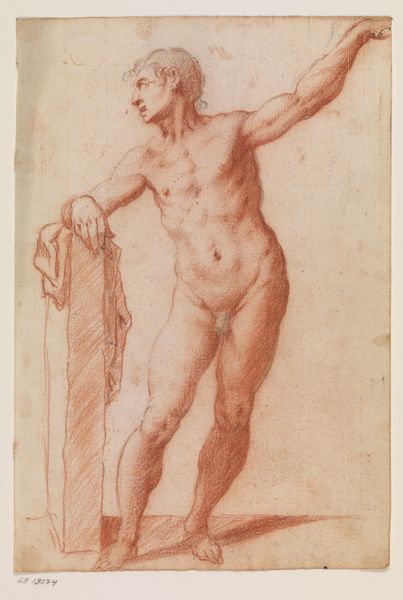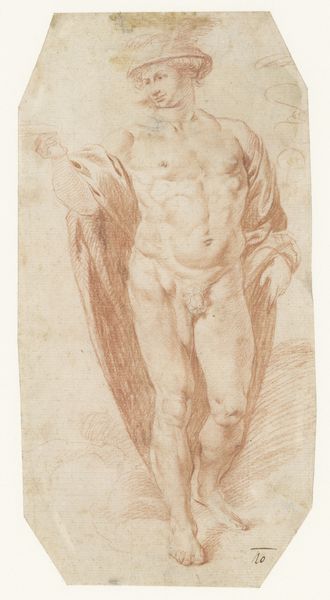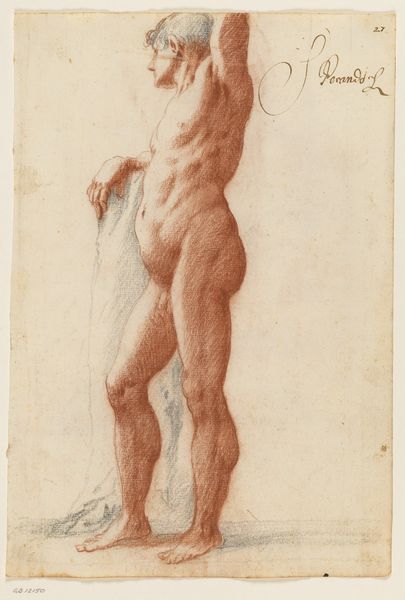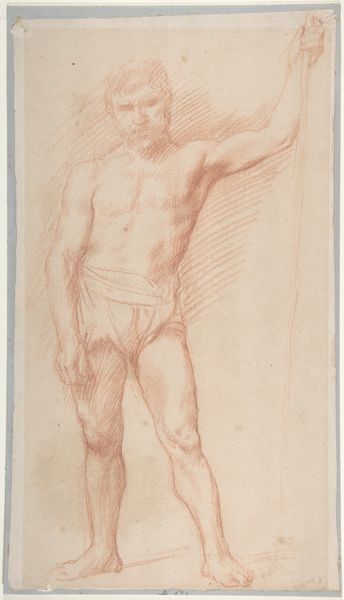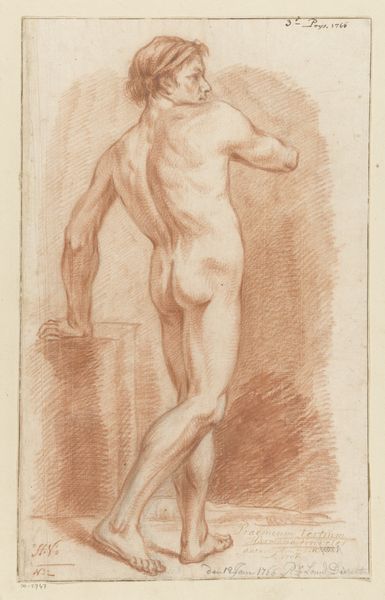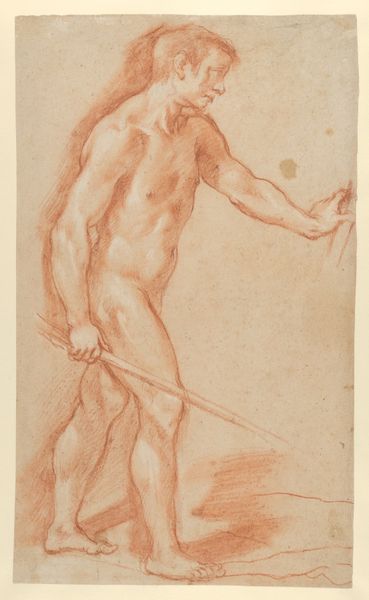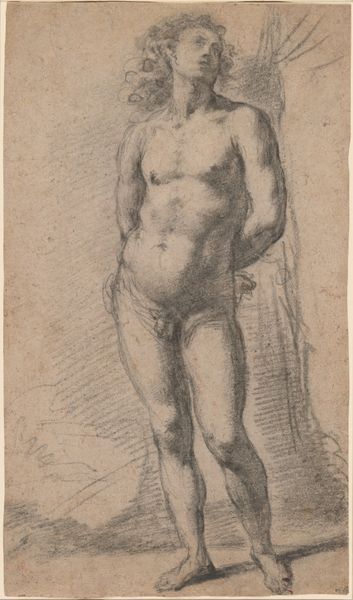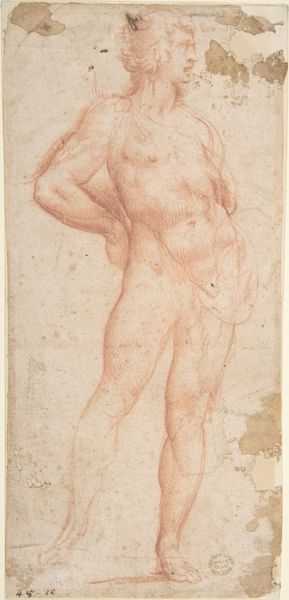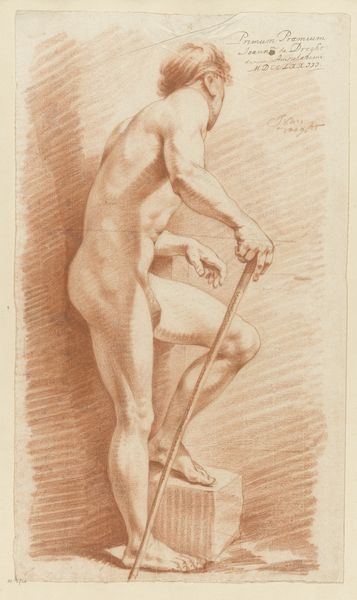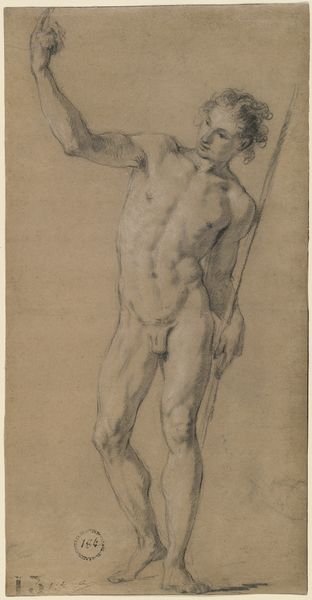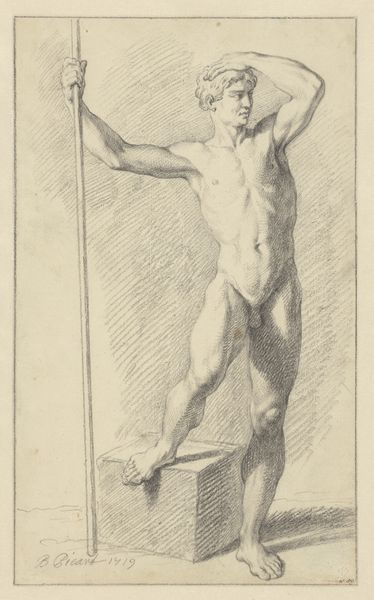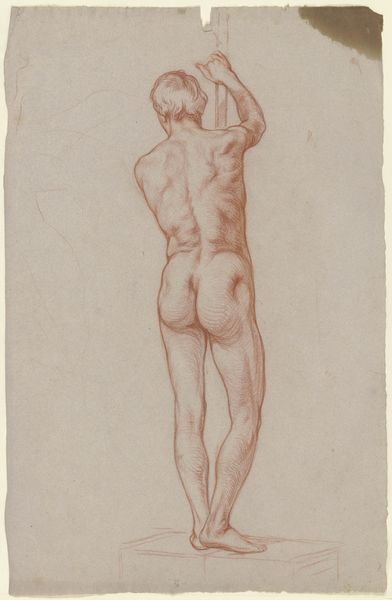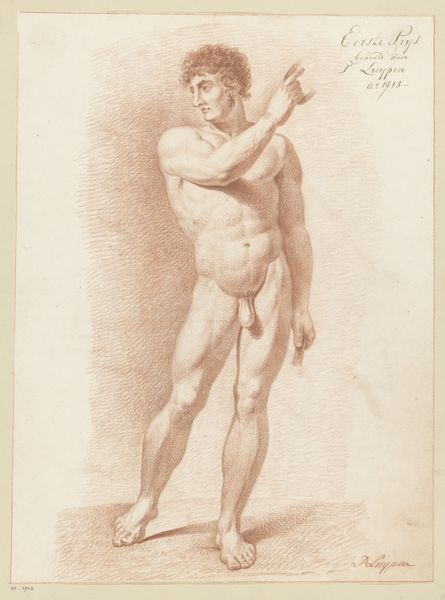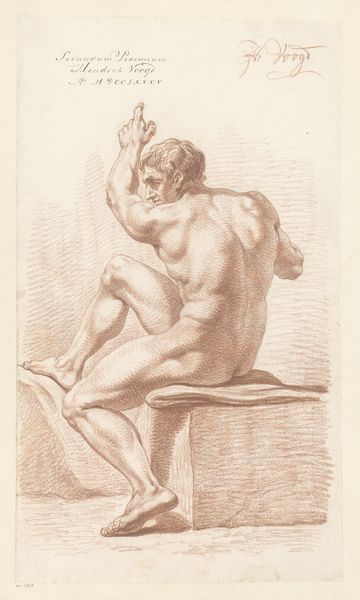
Standing male figure leaning on a plinth on the left 1667 - 1733
0:00
0:00
drawing, charcoal
#
drawing
#
baroque
#
charcoal drawing
#
pencil drawing
#
portrait drawing
#
charcoal
#
academic-art
#
nude
Dimensions: 325 mm (height) x 212 mm (width) (bladmaal)
This red chalk drawing depicts a standing male figure leaning on a plinth. Note the deliberate contrapposto, a pose where the figure’s weight rests on one leg, creating a natural, relaxed stance. The motif of the nude male figure has roots stretching back to antiquity, particularly in Greek sculpture, where it symbolized heroism, strength, and ideal beauty. In a cultural echo, we see this figure standing contrapposto like the ancient Doryphoros of Polykleitos. The raised arm, a recurring gesture throughout art history, signifies dominance, blessing, or offering. Consider its evolution from ancient depictions of emperors addressing crowds to Renaissance portrayals of divine figures bestowing grace. The placement of the male figure and the use of the plinth also have a significant meaning. Plinths serve as symbols of classical art and architecture, and their use may be interpreted as a metaphor for stability, authority, and power. This drawing is not merely an aesthetic exercise but a profound engagement with the collective memory of Western culture, invoking enduring symbols of power and humanity.
Comments
No comments
Be the first to comment and join the conversation on the ultimate creative platform.
